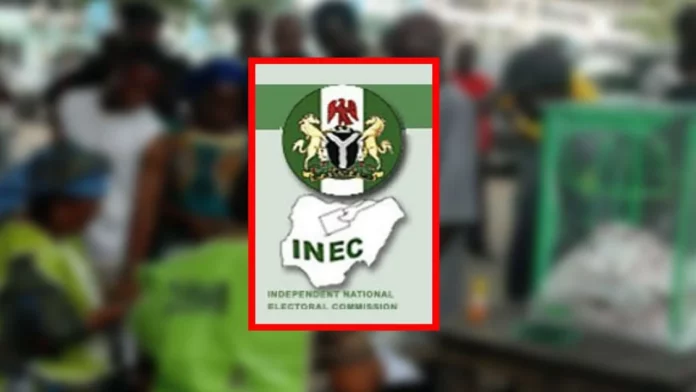|
Listen to article
|
Imo state along with two other states — Bayelsa and Kogi, according to INEC‘s assessment has been designated as the toughest of states to execute electoral duties.
Prof. Mahmood Yakubu, the INEC Chairman, brought up this point during the quarterly meeting with heads of media organisations in Abuja, which took place yesterday.
Not offering further details on his observation, Yakubu highlighted the abundance of elections, frequently triggered by resignations or fatalities, leading to the dissolution of the conventional notion of an election season.
Yakubu also mentioned that the governorship polls scheduled for November 11 would stand out as the commission aims to build upon the achievements of the successful 2023 general elections.
His words: ‘In Nigeria today, there is no election season any longer as elections are conducted all year long. 3 weeks after the inauguration of the National and State Assembly, we have already had 4 out of season elections. One is as a result of appointment. Three is as a result of dead.’
‘The second one are the bye-elections. Bayelsa, Imo, Kogi, under normal circumstances, these are difficult places to conduct elections.’
‘Here we are, the commission is saddled with the responsibility for prosecution of electoral offenders. And I’ve said this repeatedly that in our case, some of the offenders may be INEC officials.’
Read also: Enugu Tribunal: INEC Throws Weight Behind Labour Party
The electoral body pointed out the absence of an Electoral Offences Commission and Tribunal as a significant factor enabling electoral offenders to evade punishment.
He underscored the necessity of a proper agency to address electoral offenders, stating that without it, the country’s electoral process would falter.
Nigeria, in his view, ought to reconsider the proposals presented by the Electoral Reforms Panels, chaired by Justice Mohammed Uwais (rted), Sheik Ahmed Lemu, and Dr. Ken Nnamani during the administrations of Umaru Yar’Adua, Goodluck Jonathan, and Muhammadu Buhari, respectively.
‘How practicable is it for us to get ourselves prosecuted? That’s why consistently, committee upon committee have made recommendation since the Justice Uwais committee of 2009, Lemu committee of 2011, Nnamani committee of 2017 that there should be an electoral offences commission to deal with all violators of the electoral laws, whoever they are, whether they are voters, INEC officials or adhoc staff.’
‘So that is a practical concern. Some of the things that we have been doing may not lead to successful prosecution in the manner that we’re dealing with them. Now let’s look at this scenario.’
‘You have security personnel deployed for elections. Now, during elections, take an example of a police officer posted from Abuja to say Delta State for election duties.’
‘That police officer then makes arrest. Immediately after the election, the policeman comes back to Abuja and in the next six months, he may be in Sokoto, but he’s the investigating police officer.’
‘The law says that electoral offenders should be prosecuted in the magistrate court, the High Court of state or the high court a of the Federal Capital Territory (FCT) not federal high court in the state where the cause of action has risen.’
‘So that policeman that was moved from Abuja to then to Sokoto in a manner of speed is the investigating police officer.’
‘By the time you are ready to prosecute in Delta where the cause of action took place , the policeman would have lost trail of the case and might not even know where the case file is and would have made prosecution very difficult,’ he said.
In the meantime, Chris Isiguzo, the National President of the Nigerian Union of Journalists (NUJ), emphasised the importance of addressing hate speech and misinformation, urging stakeholders to find effective solutions while upholding the principles of free speech.
























